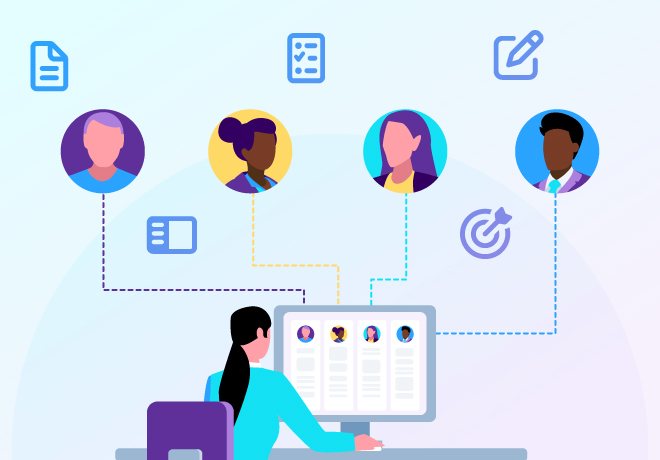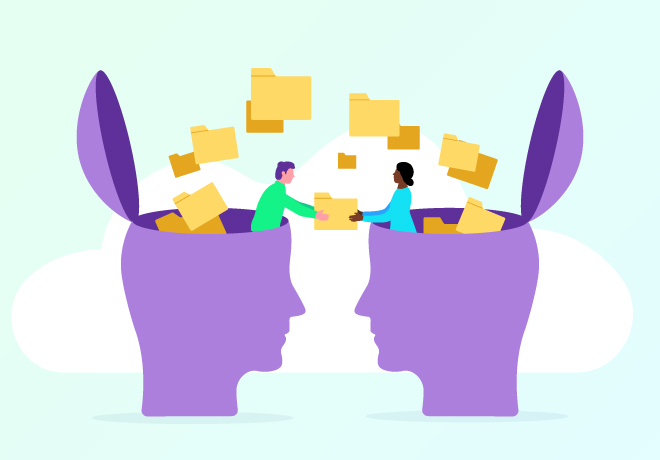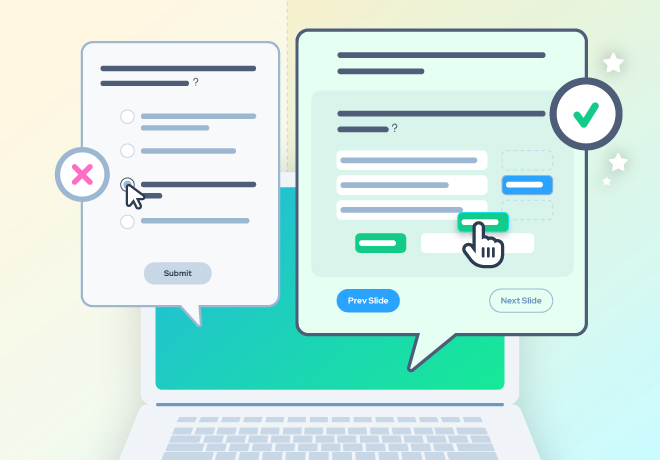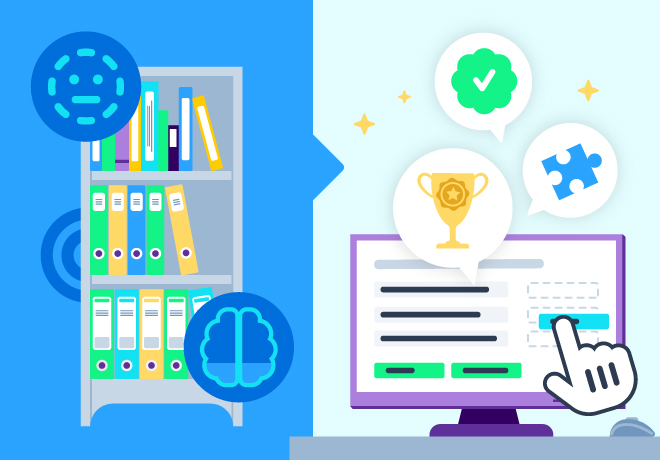
What is corporate training?

Related articles
Get valuable eLearning insights to your inbox.
Listen to Neovation’s Demystifying eLearning podcast generated with NotebookLM!
Listen to our podcast on your favorite platform!
Employee skills have a rapidly decreasing shelf-life. Automation, digital transformation and emerging technologies mean that many employees need new skills that didn’t even exist five or 10 years ago. And it’s nearly impossible to know what skills employees will need five years from now.
Long-term educational frameworks, like studying for a university degree, can’t keep up. Corporate training is the solution for upskilling and reskilling employees.
Taking many forms, corporate training is a broad umbrella. It includes face-to-face or virtual instructor-led training, asynchronous eLearning courses and a constantly growing pool of mobile, flexible and in-the-workflow options for microlearning, performance support and social and collaborative learning.
Corporate training for modern learners
Corporate training is changing to mirror changes in the way modern, digital consumers learn and behave. Rather than sending employees to long training sessions that take them away from their work, more learning is moving into the workflow, in the form of short microlearning content, which may use video, audio, text, infographic or multimedia content to deliver short, focused nuggets of information.
And, rather than put all employees through the same comprehensive training, more organizations are personalizing learning paths and curricula according to employees’ needs, existing knowledge, experience and career goals.
Identifying and filling skills gaps

As job roles change, as parts of jobs become automated or as new technology demands new skills, employers need to upskill their workers. Skills development is an ongoing need, but far easier and less costly or disruptive than constant employee turnover.
Emerging corporate training solutions specifically tackle the problem of skills or knowledge gaps. The first step is to identify these gaps; it’s then possible to deliver targeted training that focuses on getting learners up to speed in their weak areas.
Anticipating future needs
Ideally, corporate training looks forward, anticipates knowledge and skills that employees will need and prepares to meet those needs — before a crisis hits.
Employees can be placed on learning paths that will prepare them for changes in their existing roles or help them move into new roles. Learning paths and progress are generally configured in the LMS, and learners and their managers can ensure that prerequisites are completed, get reminders and status updates and track progress.
A modern LMS can juggle conventional eLearning courses, microlearning, other in-the-workflow solutions and social learning that occurs online or among colleagues within an organization. Many LMS platforms can also manage instructor-led training and other formal and informal learning.
Attract and retain the best employees
Employees want to learn — and they’re more likely to stay at companies that invest in them and help them build skills. Corporate training is an opportunity to build a better, stronger, more engaged workforce. And one that just happens to be prepared for whatever the future brings.

An experienced writer, editor, tech writer, and blogger, Pam helps you make sense of learning science and eLearning technology. She provides information you can use to drive improvements in your training effectiveness and ROI.
Become part of our L&D community
We publish a new learning hub article — full of useful, practical topics — weekly.
Not sure where where you want to start? Jump into one of our recently published articles and see where it takes you!








-svg.svg)
-svg.svg)
-svg.svg)
-svg.svg)